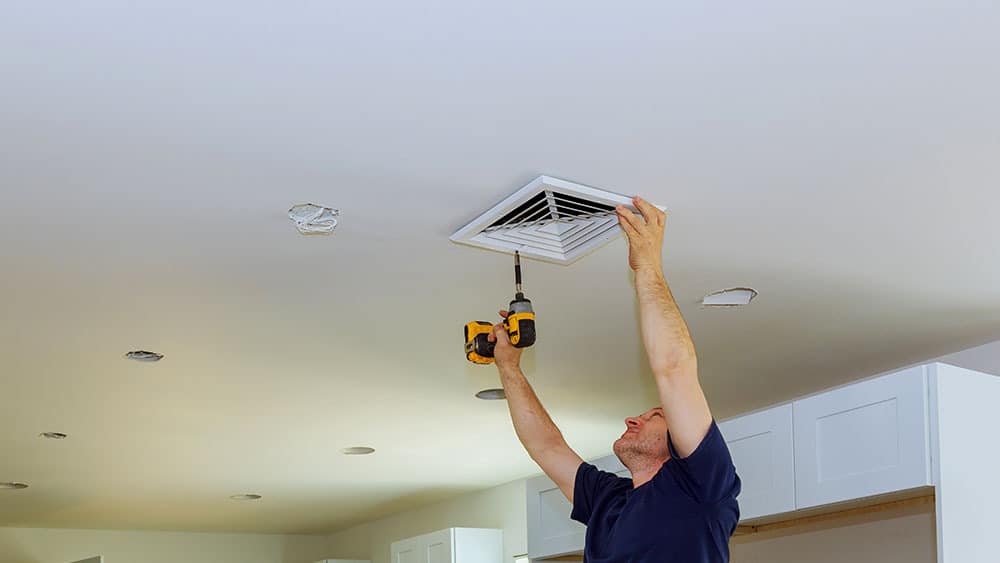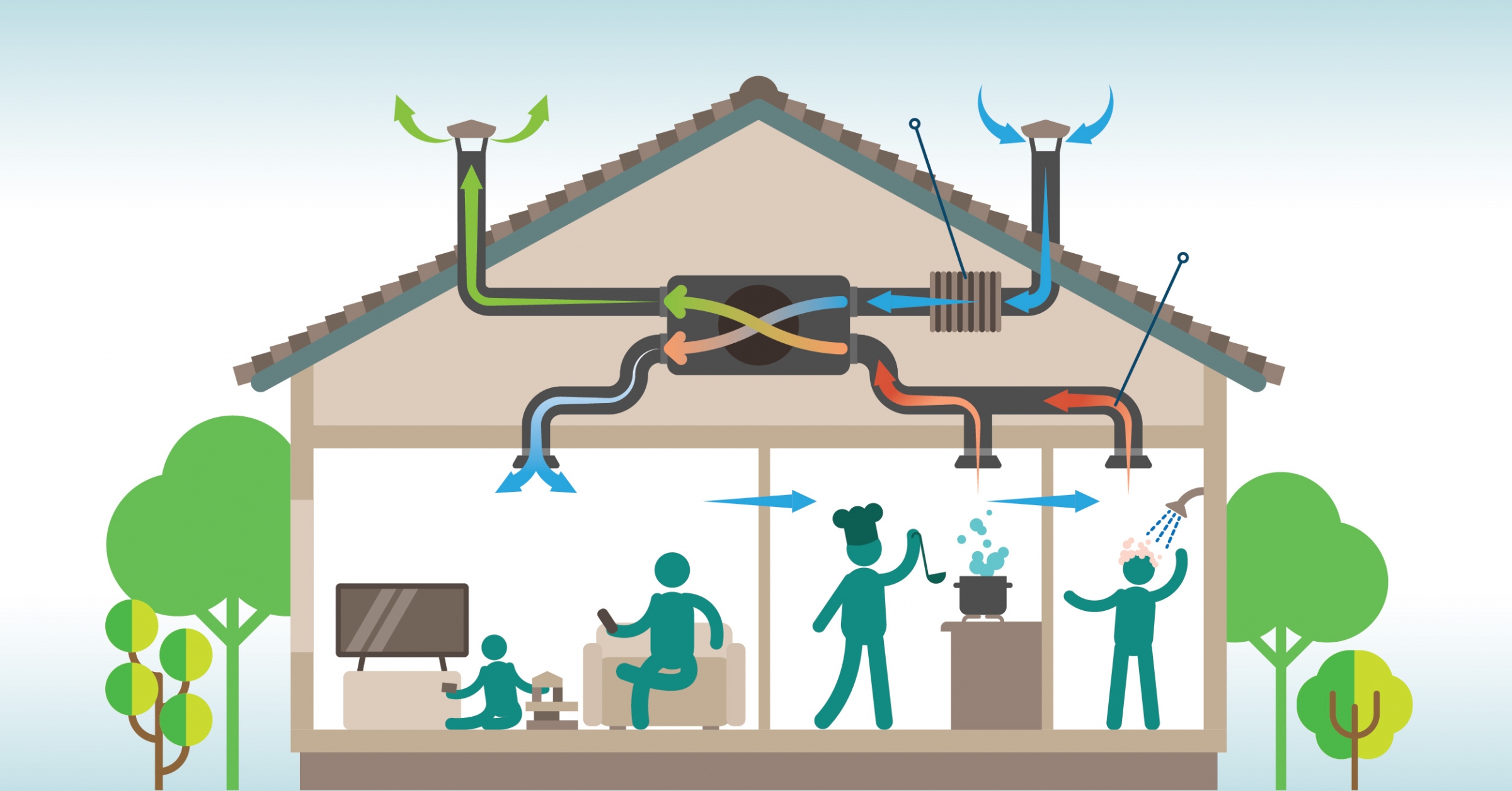Home Ventilation Melbourne: Cost-Effective Ways to Improve Airflow
The Duty of Home Ventilation in Preventing Mold and Indoor Allergens
Home ventilation is a critical element in preserving a healthy interior setting. It regulates humidity levels, which can protect against the growth of mold and the accumulation of irritants. Several house owners ignore the significance of proper ventilation, commonly leading to undetected problems. Recognizing how air flow systems function and their effect on air top quality might be the key to a much healthier space. What actions can be taken to enhance these systems properly?
Recognizing Home Ventilation Systems
While lots of home owners might overlook the importance of air flow, comprehending home air flow systems is important for preserving indoor air top quality and stopping mold and mildew development - Home Ventilation Melbourne. These systems assist in the exchange of stagnant indoor air with fresh outdoor air, efficiently reducing pollutants and moisture levels. Common types include all-natural ventilation, which depends on wind and temperature level distinctions, and mechanical ventilation, which utilizes followers and ducts to manage air movement. In addition, well balanced ventilation systems combine both methods to enhance air quality. Correctly created and preserved air flow systems can aid control temperature level and humidity, making sure a comfy living environment. Property owners should take into consideration factors like home climate, occupancy, and design when selecting an air flow system to finest fit their demands and improve total air top quality
The Effect of Moisture on Mold And Mildew Growth
Moisture plays an essential role in mold development, making it an important element for home owners to keep an eye on. Mold flourishes in atmospheres where moisture degrees exceed 60%, as these conditions supply the wetness necessary for spores to multiply and sprout. High moisture can result from different resources, including poor ventilation, water leakages, and food preparation or bathing tasks. When moisture levels continue to be raised, mold can establish quickly on natural materials such as drywall, fabric, and wood. Homeowners should make use of dehumidifiers and guarantee correct air flow in locations vulnerable to moisture, such as restrooms and cellars. Maintaining indoor moisture between 30% and 50% can significantly decrease the risk of mold and mildew development, contributing to a much healthier living atmosphere.
Recognizing Typical Indoor Allergens
Interior atmospheres can nurture a selection of allergens that affect health and wellness and comfort. Usual interior allergens consist of dirt termites, animal dander, mold and mildew spores, and pollen. Dust mites grow in bed linen, carpets, and furniture, feeding on organic material and adding to respiratory issues. Animal dander, composed of little flakes from skin and fur, can set off allergies in sensitive individuals. Mold and mildew spores, commonly present in wet locations, can affect and multiply air quality. Additionally, plant pollen can infiltrate homes via open windows or on apparel. Recognizing these allergens is necessary for maintaining a healthy and balanced indoor environment. Awareness of their existence allows property owners to take positive procedures to minimize direct exposure and improve general indoor air high quality.
Benefits of Proper Air Flow
Appropriate ventilation is vital for keeping a healthy and balanced indoor environment, as it helps to control air top quality and decrease the build-up of toxins. Appropriate air flow facilitates the exchange of outside and interior air, therefore weakening hazardous materials such as unpredictable natural compounds, irritants, and dirt. This procedure Home Ventilation Melbourne not only improves convenience however likewise adds to the overall well-being of passengers by lessening breathing concerns (Home Ventilation Melbourne). Furthermore, appropriate ventilation properly controls moisture levels, decreasing the possibility of mold and mildew growth and cultivating a drier environment for health. In addition, it can enhance power effectiveness by making certain that cooling and heating systems operate more properly, causing lower power expenses. Generally, appropriate ventilation is an essential part in advertising a risk-free and healthy home

Tips for Improving Home Ventilation
Numerous homeowners may forget it, enhancing home ventilation is important for enhancing air quality and preventing mold and mildew growth. One efficient technique is to consistently open windows to promote cross-ventilation, enabling fresh air to circulate. Setting up exhaust fans in cooking areas and bathrooms can effectively remove moisture-laden air, lowering humidity degrees. Homeowners should likewise think about using air cleansers with HEPA filters to capture allergens and pollutants. Routinely keeping heating and cooling systems, consisting of transforming filters, warranties peak air movement and efficiency. Sealing leakages around doors and home windows can protect against outdoors air from getting in, which aids keep a regular indoor environment. Including houseplants can naturally improve air quality while including visual worth to the home.
Frequently Asked Inquiries
Exactly how Often Should I Tidy My Home Ventilation System?
Establishing just how usually to clean up a home air flow system depends upon numerous elements, including usage and ecological conditions. Home Ventilation Melbourne. Normally, professionals recommend a detailed cleansing every 3 to 5 years to keep excellent air movement and effectiveness
Can Plant Kingdom Help Decrease Indoor Allergens?
Research suggests that certain interior plants may assist decrease allergens by improving air high quality and increasing humidity. However, their efficiency differs, and preserving a tidy setting remains essential for handling interior irritants effectively.
What Types of Air Filters Are Ideal for Mold And Mildew Prevention?

Exist Specific Air Flow Needs for Basements?

Just how Do I Know if My Ventilation Is Functioning Successfully?
To determine effective air flow, one should keep an eye on moisture degrees, inspect airflow via vents, and observe signs of condensation or stagnant air. Routine assessments can show whether the system sufficiently circulates and exchanges interior air.
Comprehending just how air flow systems function and their effect on air top quality could be the secret to a healthier living area. While lots of homeowners may neglect the importance of ventilation, recognizing home air flow systems is essential for keeping indoor air high quality and preventing mold and mildew development. Usual types consist of all-natural air flow, which relies on wind and temperature level differences, and mechanical ventilation, which uses ducts and followers to control air flow. Correct air flow is vital for maintaining a healthy indoor environment, as it assists to regulate air high quality and decrease the accumulation of contaminants. Many home owners might overlook it, improving home air flow is essential for boosting air high quality and protecting against mold development.